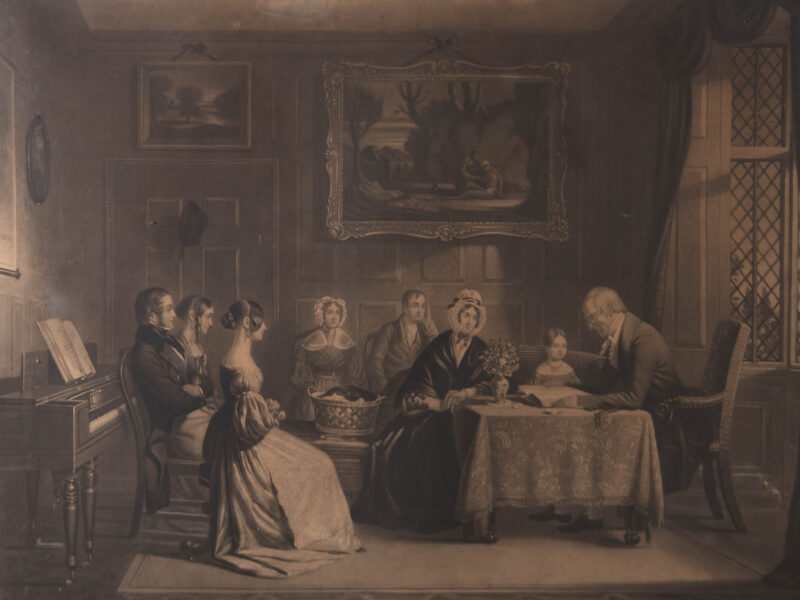The views expressed in this essay do not necessarily reflect the views of the Department of Defense or Naval Reactors, nor does it indicate endorsement of DoD or NR policies. All material discussed is open-sourced and not subject to the classification stipulations of the Atomic Energy Act of 1957.
In a former life I worked as a nuclear engineering officer in the U.S. Navy. The prestige of the Nuclear Navy resides in its precision, methodology, and success rate. Since 1955, the U.S. Navy has safely and continuously operated hundreds of nuclear reactors in and amongst major population centers, in wartime environments, and even in foreign ports of nations that do not allow the operation of civilian nuclear power plants. As a member of the Nuclear Navy, the success of our institution was drilled into us, as well as the imperative that the future of nuclear power plants in our nation rested upon our shoulders. We were called upon to follow the path laid before us with exacting detail; there was no room for deviation. Colloquially, there would be no Chernobyl on the Navy’s watch.
You may be wondering what naval nuclear engineering has to do with Anglicanism. Well, I’m glad you asked. The Nuclear Navy has two primary commonalities to Anglicanism: first, its implementation of written procedures and second, its delegated oversight and procedural control. Concerning the first, the Navy has the Reactor Plant Manual; every aspect of our life as nuclear operators was governed by this manual. In Anglicanism we have the Book of Common Prayer; in the Prayer Book we find all of the contours of the Christian life, from Scripture reading and devotion to rules for ascetical theology and liturgical customs. And concerning the second, Naval Reactors delegates its authority (at least on nuclear aircraft carriers on which I served) first to reactor officers, then to nuclear engineering officers, and finally to watch officers. In similar ways, the province delegates its authority first to diocesan bishops, then to rectors and vicars, and finally to associates and curates.
After an extensive period of training a junior naval officer can qualify as a nuclear watch officer, which we can liken to associate priests and curates. In this role, they assume complete responsibility for all procedures, personnel, and equipment in the power plant. The position carries an immense weight and left me honestly and rightfully terrified as I assumed the watch the first time. While the position of watch officer was a humbling responsibility, the Reactor Plant Manual was a sure roadmap to success for the junior watch officer. No deviation from the manual was allowed; not necessarily because it is always the “best” way to do something, but because it is “THE” way to do something. The watch officer is not a design basis engineer, he is a practitioner operating the plant to the established design parameters in accordance with the procedures within those parameters.
Those who have served well as watch officers go through additional training, testing, and interviews to qualify as nuclear engineering officers.[1] These officers differ from their pre-selection peers in that they have extensively studied the design basis of the plant and are entrusted with additional supervisory responsibility. For the sake of analogy, engineering officers correspond to rectors and vicars, those clergy with pastoral and liturgical oversight of congregations. Finally, an exclusive few engineering officers go through even more specialized training to serve as reactor officers. These officers are responsible for all power plant operations in any and all circumstances, governed or not governed by the manual. In essence, they are the diocesan bishops of the Nuclear Navy.
Now, you may think there is a gulf of difference between the pastoral theology of Prayer Book spirituality and the exacting demands of a nuclear power plant in which missteps can have grave consequences. However, this assumption loses sight of the fact that the sacraments governed by the Prayer Book are not merely “badges or tokens of Christian men’s profession”[2] but are actually efficacious means by which God communicates his salvation to us.[3] In short, what the Prayer Book directs is more serious than that governed by the Reactor Plant Manual. This is not hyperbole, just a proper metaphysic.
Following the English Reformation (and the Roman Council of Trent, for that matter) liturgical norms were exacting and most local usages and customs fell out of favor. No variations or pastoral considerations were allowed in the liturgies. Diocesan Bishops were the only people allowed leniency in their adherence to the rubrics (and minimally, at that). In the Anglican context, those who did not follow the rubrics (whether Puritan or Ritualist) were non-conformists. They were an aberration and stood actively opposed to the godly order of the church.[4] However, following the Liturgical Movement, there has been a growing awareness that liturgies exist for the particular and local community and therefore must be adaptable to fit that specific context. This expresses itself textually with the proliferation of eucharistic prayers and optional rubrics within all major Western rites produced since the Second Vatican Council. In the old system, practitioners of liturgy did not necessarily need to understand the reason behind the rubric; all they had to do was follow it. In nuclear engineering terms, all practitioners (besides diocesan bishops) were analogous to watch officers. They were well trained, but deviations from the manual were forbidden. Now, following the Liturgical Movement, pastors need to be liturgists. They need to understand the design basis behind the optional rubric so that they can exercise the full effect and intention of its flexibility.[5] Modern prayer books have a plethora of options, but the options are not arbitrary. They have a design basis which must be understood in order to properly carry them out. In nuclear engineering terms, the Liturgical Movement has converted rectors and vicars into liturgical engineering officers.
However, while the Liturgical Movement would have insisted upon all pastors being contextual liturgists, most pastors nowadays would shy away from the title of liturgist. In fact, they may even take pride in not being “stuffy” about their liturgies. Why should they spend time to understand the “why” behind rubrical options when they could better use that time ministering to their people? Moreover, why bother with rubrics in the first place? The intention of the rite is clear, as long as that is maintained, is not God worshiped?
The reason these pastors should bother is because in their ordination vows they swore to always “minister the doctrine, sacraments, and discipline of Christ, as the Lord has commanded and as the Church has received.”[6] Like nuclear engineering officers, they are entrusted with a great weight. As they conform themselves and their ministries to the rubrics of the Prayer Book, they provide for the cure of the souls entrusted to them. They minister the means of salvific grace, and to do so flippantly and without proper regard for the order entrusted to them – playing fast and loose with the ordinances of God – is not only improper, it is sinful (according to Article XXXIV) because it wounds the consciences of the laywomen and men under their charge. It withholds that which the church has ordained to give them.
Lest the point be missed, this exactitude does not mean that the liturgies are static and impersonal. The post-Liturgical Movement rites (which includes The Book of Common Prayer 2019) are extraordinarily flexible and designed to conform to local contexts and situations. Moreover, deviations from the rubrics are allowed, but only with the authority of the diocesan bishop (in the Navy we referred to this as a “temporary standing order” or “departure from specification”). However, the room for flexibility raises the bar rather than lowering it. To make something optional (for example, to never use the Gloria in Excelsis but always a different song of praise) is not just a personal prerogative, it must be one made in accordance with the design basis of the rubric. What did the church intend? All pastors with liturgical oversight should take to heart this responsibility. Before you act upon an optional rubric, ask yourself, “do I understand the basis behind this rubric in the first place?” Before you skip something mandatory out of pastoral expediency (maybe it’s World Mission Sunday and you need more time during the sermon for a visiting missionary) ask yourself “have I called the bishop to deviate – do I have his temporary standing order?”
We should rightly expect our government to implement and maintain strict standards for its nuclear engineering programs. Deviation from the Reactor Plant Manual – especially without proper understanding of the design basis – puts innocent lives at stake. In like manner, we should rightly expect our pastors to hold themselves to strict standards of adherence to the “doctrine, sacraments, and discipline of Christ…as this Church has received them.”[7] The salvation of souls is at stake.
Notes
- For a discussion of the Prospective Nuclear Engineering Officer course, see the following article from the Navy’s All Hand’s Magazine: https://allhands.navy.mil/Stories/Display-Story/Article/1839925/call-me-a-nuclear-engineer/ ↑
- Article XXV from the Thirty-Nine Articles of Religion of 1571. ↑
- The 1662 Catechism (reiterated in question 123 of To Be A Christian: An Anglican Catechism) teaches that the Dominical Sacraments of Baptism and the Lord’s Supper are “generally necessary to Salvation.” ↑
- Article XXXIV from the Thirty-Nine Articles of Religion of 1571: “Whosoever through his private judgment, willingly and purposely, doth openly break the traditions and ceremonies of the Church, which be not repugnant to the Word of God, and be ordained and approved by common authority, ought to be rebuked openly, (that others may fear to do the like,) as he that offendeth against the common order of the Church and…woundeth the consciences of the weak brethren.” ↑
- Frank C. Senn, Christian Liturgy: Catholic and Evangelical, (Minneapolis: Fortress Press, 1997), pg. 648. ↑
- “The Ordination of a Priest,” Anglican Church in North America, The Book of Common Prayer (Huntington Beach, CA: Anglican House Publishers, 2019), pg. 490. Emphasis mine. ↑
- “The Ordination of a Priest,” Anglican Church in North America, The Book of Common Prayer (Huntington Beach, CA: Anglican House Publishers, 2019), pg. 490. ↑





'Rubrics and Nuclear Engineering' has 1 comment
July 13, 2023 @ 9:08 pm JEREMY WAYNE GOODWIN
I love that you have called attention to this parallel. I am actually an ETN1, who has served for about 10 years and intends for 10 more. I am also an Anglican with the Episcopal Church USA and love this shared experience. Thank you.